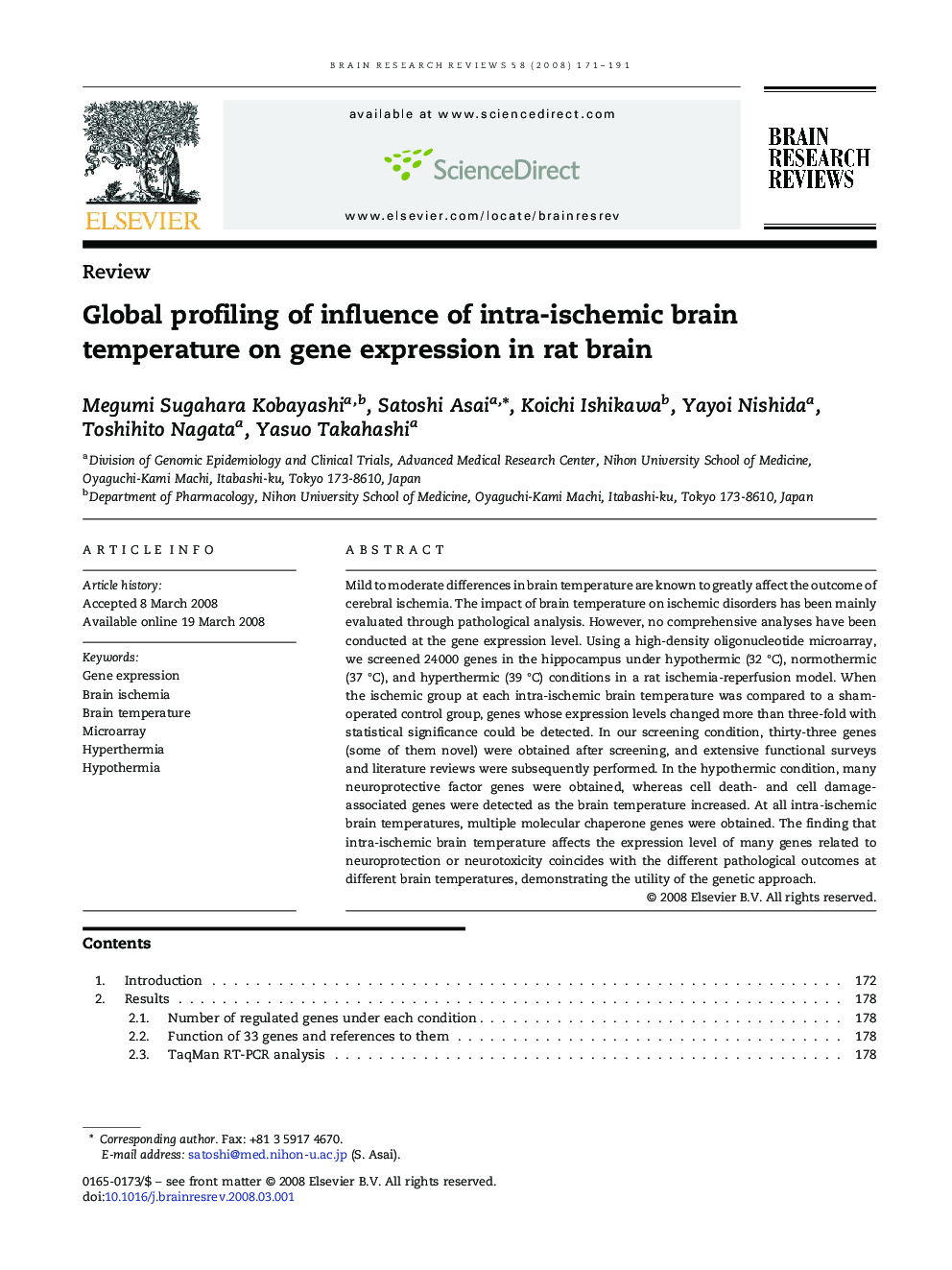| Article ID | Journal | Published Year | Pages | File Type |
|---|---|---|---|---|
| 4333760 | Brain Research Reviews | 2008 | 21 Pages |
Mild to moderate differences in brain temperature are known to greatly affect the outcome of cerebral ischemia. The impact of brain temperature on ischemic disorders has been mainly evaluated through pathological analysis. However, no comprehensive analyses have been conducted at the gene expression level. Using a high-density oligonucleotide microarray, we screened 24 000 genes in the hippocampus under hypothermic (32 °C), normothermic (37 °C), and hyperthermic (39 °C) conditions in a rat ischemia-reperfusion model. When the ischemic group at each intra-ischemic brain temperature was compared to a sham-operated control group, genes whose expression levels changed more than three-fold with statistical significance could be detected. In our screening condition, thirty-three genes (some of them novel) were obtained after screening, and extensive functional surveys and literature reviews were subsequently performed. In the hypothermic condition, many neuroprotective factor genes were obtained, whereas cell death- and cell damage-associated genes were detected as the brain temperature increased. At all intra-ischemic brain temperatures, multiple molecular chaperone genes were obtained. The finding that intra-ischemic brain temperature affects the expression level of many genes related to neuroprotection or neurotoxicity coincides with the different pathological outcomes at different brain temperatures, demonstrating the utility of the genetic approach.
